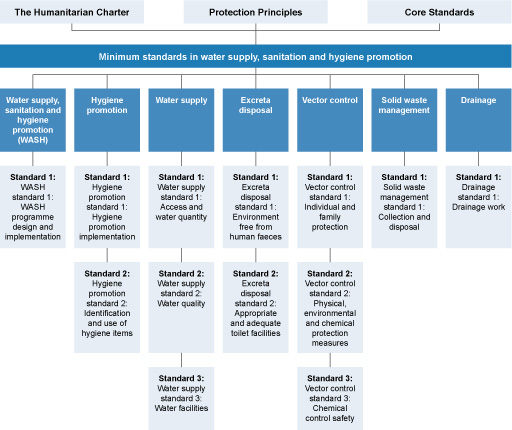14.1.1 Standards for emergency response
The organisations usually involved in responding to emergencies include national and local government and many different international, national and local organisations as well as other local groups. They aim to provide humanitarian assistance to the people affected by the emergency. The Sphere Project is an international initiative that aims to improve the quality of actions taken in response to disaster situations. It provides standards against which all humanitarian response activity can be held to account (Sphere Project, 2011). The Sphere Handbook has core sets of standards for:
- water supply, sanitation and hygiene promotion
- food security and nutrition
- shelter, settlement and non-food items
- health actions.
These standards describe the humanitarian actions that should be taken in the event of an emergency in order for ‘disaster-affected populations to survive and recover in stable conditions and with dignity’ (Sphere Project, 2011). Within the water supply, sanitation and hygiene promotion section, standards are set in several different categories, as you can see in Figure 14.3.

The Sphere Handbook includes standards for responses to meet needs for clean water, basic shelter and sufficient food. It also includes standards for responses concerned with promotional activities and behaviour change, which are the focus of this study session.
Communication interventions for an emergency can be summarised as consisting of three distinct phases: preparedness, response and recovery. We will look at each of these phases in turn in the following sections.
Why is hygiene behaviour critical during emergency?
Hygiene behaviour is critical because disease risks are higher in emergency situations. This is because of overcrowding, lack of safe water and poor sanitation facilities, so has a critical influence on the transmission of disease. In emergency situations it is particularly important to prevent spread of disease.
14.1 What is emergency WASH?
